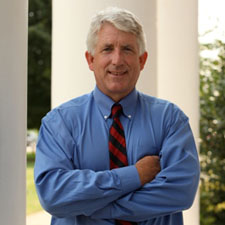
The biodegradable Deterra drug disposal kits from Mallinckrodt Pharmaceuticals can deactivate and destroy up to 45 pills each with the addition of warm tap water before being disposed of in the trash. With excess prescription opioids known to contribute to misuse, abuse, and addiction, these kits will allow Virginians to safely dispose of these drugs without contaminating water sources or harming the environment. In 2015, 576 Virginians died from a prescription opioid overdose, 342 from a heroin overdose, and 224 from an overdose of fentanyl. Through the first six months of 2016, at least 213 Virginians have died from a fatal prescription opioid overdose, 103 from a heroin overdose, and 136 from a fentanyl overdose.
“We know that, in many cases, this opioid crisis has its roots in the medicine cabinet,”said Attorney General Herring. “Something as simple as a sports injury, dental work, or a surgery can expose a person to powerful opioid medications that can eventually lead to abuse, dependence, and addiction. Once the pills run out or become too expensive, people find themselves looking for more illicit drugs to support their habit and they find cheap, potent, and inconsistent heroin on the streets. I’ve spoken to so many Virginians who have started down the path to addiction by misusing prescription drugs, and so many parents who lost a child to an opioid addiction that began with prescriptions and ended with a fatal overdose of heroin or fentanyl. If we can educate more Virginians on the power and potential danger of these drugs, and reduce the number of loose prescriptions in homes, we can keep more Virginians from ever going down that path in the first place. I really think these kits are going to make Virginia homes and families safer by providing a safe way to get rid of unused opioids and other prescriptions.”
Attorney General Herring is getting these drug disposal kits into the hands of Virginians in two ways:
- Beginning November 1, approximately 50,000 kits will be distributed statewide by partnering with the Virginia Department of Health.
- An additional 30,000 kits will be made available to local hospitals, law enforcement agencies, pharmacies, and nonprofits through an application process on Attorney General Herring’s website.
There will be no cost to the state or to individuals for the drug deactivation kits.
“The Virginia Department of Health and partners provide educational sessions on opiate misuse to hundreds of healthcare providers every year,” says State Health Commissioner Dr. Marissa Levine. “Attendees often ask about drug disposal options for their patients. Disposal devices such as the ones to be distributed are an important part of a collaborative, multi-part effort in Virginia to curb the epidemic of addiction.”
“As a company focused on the health and well-being of our patients and communities, Mallinckrodt has long been a strong advocate of addressing the complex issues of opioid misuse and abuse that cause so much harm to families,” said Mark Trudeau, Mallinckrodt President and Chief Executive Officer. “Providing patients with a safe, environmentally responsible way to dispose of unused medications is critical in this fight against prescription drug abuse. Mallinckrodt is committed to working with policy makers, community leaders, law enforcement and industry partners to ensure the responsible use of pain medication and to prevent unused medications from being misused or abused.”
There is a strong link between misuse of prescription opioids, opioid addiction, and even later use of heroin once prescriptions become too expensive or are no longer accessible. According to the National Institute on Drug Abuse:
- Half of young people who used heroin got started by abusing prescription opioids.
- One in fifteen individuals who misuse prescription opioid painkillers will try heroin within 10 years.
- The number of opioid prescriptions has nearly tripled over the last 25 years, and the United States now accounts for nearly 100 percent of the world’s hydrocodone prescriptions and 81 percent for oxycodone.
- The number of Americans abusing heroin nearly doubled from 2007 to 2012, with nearly 700,000 now abusing heroin.
In Virginia, abuse and overdose deaths continue to rise:
- Prescription opioid overdose deaths have risen 44 percent between 2007 and 2015, from 399 deaths to 576.
- Heroin overdose deaths have risen more than 600 percent between 2010 and 2015, from 48 to 342.
- Fentanyl deaths have risen 367 percent from 2007 to 2015, from 48 to 224.
- More than 500 people went to a Virginia emergency room from a heroin overdose in the first four months of 2016, a 250% increase over 2015.
Attorney General Herring has made combating the heroin and prescription opioid epidemic a top priority, attacking the problem with a multifaceted approach that includes enforcement, education, prevention, and legislation to encourage reporting of overdoses in progress, expand the availability of naloxone, and expand access to the Prescription Monitoring Program. He has supported federal efforts to improve the availability of treatment and recovery resources and recently partnered with U.S. Attorney Dana Boente to create the Hampton Roads Heroin Working Group to develop holistic, community-driven solutions to the heroin and opioid crisis.










